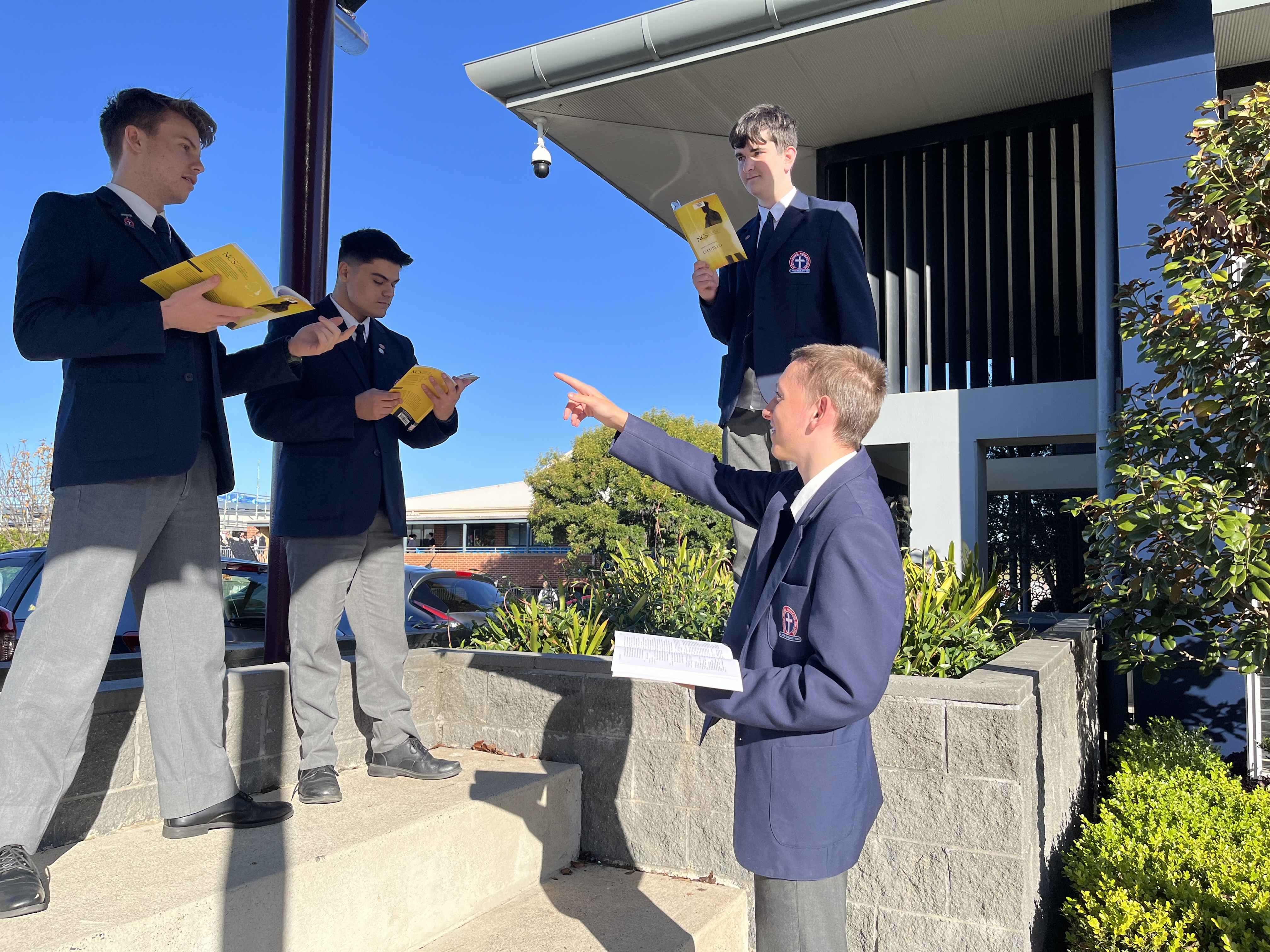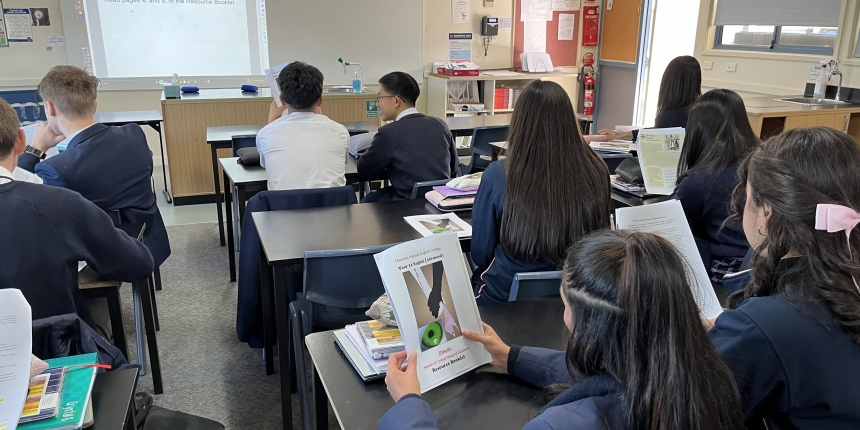Here, at the College, we have so very many students who are undertaking the English Advanced course – from the Common Module: Reading to Write, at the beginning of Year 11, to the final module studying persuasive writing, just before the HSC Examination at the end of Year 12.
Our future 2025 HSC cohort, currently half-way through their Year 11 course, have just submitted their Multimodal Presentations, which feature their first evaluative essays. These complex responses to HSC-style questions allow students the opportunity to offer their informed personal perspective on a pair of literary texts. These texts include examples of the divided protagonist trope, which recurs throughout history, starting with the novella, The Strange Case of Dr Jekyll and Mr Hyde. Spoiler alert: these two gentlemen are, in fact, two aspects of the same fellow!
For most of this term, I have had the genuine pleasure of looking after one of the Year 11 English Advanced classes temporally. I have watched them unpacking ideas about social justice embedded in narratives of class struggle, gender equality and indigenous recognition. I have watched them using analytical skills to express their understanding through concise sentences and developing arguments. They have shown that, where they put effort in, they are capable of displaying an understanding of language and ideas to a level that they could not have imagined in Year 10… just a year ago.
What we have seen, with this and previous senior cohorts, is that students with a range of abilities and past experiences of English can have enhanced success with the ideas, skills and texts studied in the Advanced course. This is just so long as the course is delivered in a way that is accessible and that incorporates an adjustment of approaches to suit students across the range of abilities and interests.
What few have had the opportunity to appreciate is that the alternative English Standard course, for Stage 6, requires students to master substantially the same skills and the same literary appreciation of texts. At the same time, English Standard does not afford students the crucial cultural capital – the development of an educated voice – that allows them to communicate with others on an equal footing across the country and across the English-speaking world, if that is where their future is taking them.
For now, the next great learning endeavour for Year 11 English Advanced is a Critical Study of Literature, focusing on just one significant text. In this case, it is the tragedy play by William Shakespeare, Othello. In Term 3, we are even hosting an incursion by the Australian Shakespeare Company to give our Advanced students an interactive experience of the play and how it is performed live.
They have just started this third stage of their Year 11 English learning journey, over the past week. I look forward to seeing what they have to say, and what they can do, in response to such a timeless classic as it speaks to the divided politics of our present era.

Mr David Gawthorne
Faculty Coordinator - English


